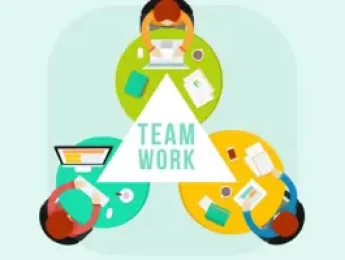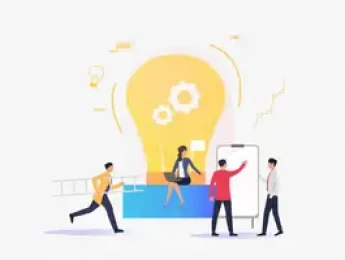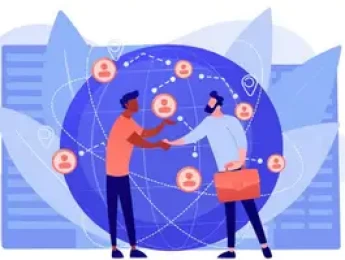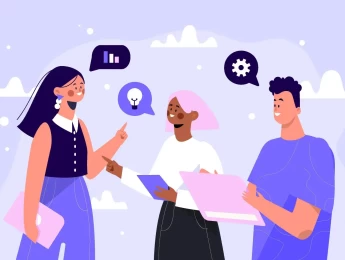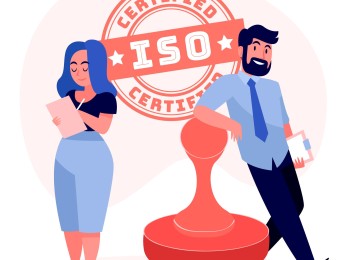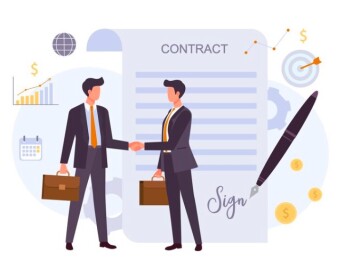As your business grows, it’s essential that you develop a collaborative and communicative team that works seamlessly towards a single end goal. This will help you achieve greater results and ensure a happier workforce.
Teamwork allows you to stay ahead of your competition and actively review current processes to improve continuously. It allows you to provide a single, collective message to your customers, helping to form positive engagement and gain excellent reviews.
Working within a focused and cooperative team will motivate your employees and make them feel more supported. This will help you effectively manage and increase organisational performance, flag issues, and discover new goals to move forward.
U pon completion of this course, participants will be able to:
- Work collaboratively with other people and share ideas.
- Constructively express your ideas.
- Understand the benefits of teamwork.
- Create a supportive environment that supports innovation.
- Utilise effective communication skills to inspire others.
- Motivate a team and ensure everyone is working towards the same goal.
- Deal with issues and negativity raised within a team.
- Evaluate key processes and procedures as a team to work towards continuous improvement.
- Assess each team member's strengths and development areas to aid effective delegation.
This course suits anyone working in a team environment or leading a team to achieve positive results. It would be particularly beneficial for:
- Line Managers
- Supervisors
- Operations Managers
- Directors
- Team Leaders
- HR Personnel
- Developing Managers
This course uses various learning methods to help individuals work together successfully to achieve results as a collaborative team. You will complete group exercises to understand each person's strengths, conduct role-playing and practical challenges to achieve a collective goal, and use paper-based methodologies to understand the theory behind teamwork and its benefits.
Day 5 of each course is reserved for a Q&A session, which may occur off-site. For 10-day courses, this also applies to day 10
Section 1: The Importance of Teamwork
- Why teamwork is necessary for success.
- The key benefits of collaboration.
- Innovation as a team.
- Creating effective team-building exercises.
Section 2: Building a Collaborative Team
- Finding the best candidates.
- Understanding knowledge and skill gaps and how to fill them.
- Creating team values.
- Delegation and finding the right person for the role.
- Your role as a leader.
Section 3: Effective Communication Methods
- The importance of body language.
- Presenting information to cater to all learning styles.
- The Honey and Mumford learning styles test.
- Building trust within the team.
- Effective team meetings.
Section 4: Inspirational Goal Setting
- Benchmarking against the competition.
- The GROW model and how to use this in a team environment.
- Persuasive negotiation to gain team buy-in.
- SMART targets and achievable goal setting.
- Small-step analysis to achieve long-term aims.
- Discovering strategic aims.
Section 5: Conflict Resolution
- Performance management methods.
- Delivering a negative message but gaining a positive result.
- Learn how to say ‘no’ in the right way.
- How to recover when trust is broken.
- Making conflict productive.
Section 6: Monitoring & Reviewing Change
- Analytics and feedback.
- Making changes that benefit everyone.
- The benefits of appraisals.
- Team development.
- Employee recognition.
- Understanding the need for improvement and creating a group action plan.
Upon successful completion of this training course, delegates will be awarded a Holistique Training Certificate of Completion. For those who attend and complete the online training course, a Holistique Training e-Certificate will be provided.
Holistique Training Certificates are accredited by the British Assessment Council (BAC) and The CPD Certification Service (CPD), and are certified under ISO 9001, ISO 21001, and ISO 29993 standards.
CPD credits for this course are granted by our Certificates and will be reflected on the Holistique Training Certificate of Completion. In accordance with the standards of The CPD Certification Service, one CPD credit is awarded per hour of course attendance. A maximum of 50 CPD credits can be claimed for any single course we currently offer.
- Course Code MG2-101
- Course Format Classroom, Online,
- Duration 5 days





